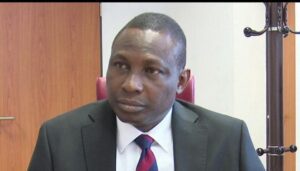
Lack of clarity, discipline in Nigerian budgeting process — Expert
The founder of BudgIT, a platform focused on fiscal transparency, Seun Onigbinde has criticised the Nigerian government’s budgeting process, citing a lack of clarity, discipline, and performance-driven planning.
In an interview on Saturday, Onigbinde highlighted issues with the 2023 budget, which was passed into law by the previous administration.
He noted that there was no clear information on how the budget performed and expressed concern over the existence of three concurrent budgets, leading to confusion and inefficiency.
Onigbinde further criticised the use of the supplementary budget, which he believed should have been allocated for emergency spending rather than distributing cars or rehabilitating government offices.
He suggested that such expenses could have been postponed until 2024, emphasising the need for improved government planning.
The low level of capital expenditure also raised concerns for Onigbinde, as it remained below 50 percent at the time of the project implementation report’s release, which was due until Q2 2023.
He stressed the importance of performance-driven budgeting and highlighted the significance of capital expenditure for development.
He pointed out the high debt servicing cost, which was budgeted to go as high as N8.2 trillion, nearly double the size of the entire budget in 2015. He said that this showed that the fiscal side was not looking right, and that it would take a lot of discipline for the budget to make a lot of impact.
He said, “It’s not clear how that budget (2023 budget) performed. There’s no certainty around that.
“Let’s be honest, we have around three budgets running concurrently right now; we have the 2023 budget that was passed into law under the previous administration; we have the supplementary that was hurriedly passed late into 2023; then we have the 2024 budget now, and for me that’s risk of a lack of thought because, in a way, the supplementary budget that was done last year should have been for very germain things like emergency spending, it was not for us to be distributing cars or rehabilitating government offices like that, all of that could have waited till 2024. So, something still feels off in the way government planning is being done in recent times.
“And as regards the 2023 budget, we don’t have the full figures yet and it’s something that we should have by now. Capital expenditure is still below 50 per cent as at the time when the project implementation report was released, which is due till Q2 2023. So, there is still a challenge in which, that government budgeting, it has to be driven by performance and we are talking about the capital expense.
“We have things like the debt servicing cost, no! We are spending a whole lot on that. For example, debt servicing cost is budgeted to go as high as N8.2 trillion, we didn’t even have such size of budget ten years ago or even eight years ago, I mean, as at 2015 our entire budget was not even up to N5 trillion now we have debt servicing cost of N8.2 trillion.
“So, there are some dimensions in the budget that means that things are not looking right from the fiscal side, it would take a whole lot of discipline if this budget is going to make a lot of impact.”
Onigbinde is a well-known advocate, entrepreneur, and analyst, who has been vocal about the need for fiscal transparency and accountability in Nigeria.
He has been involved in various initiatives and projects that aim to improve governance and civic engagement in the country.



